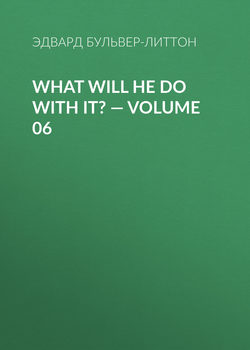Читать книгу What Will He Do with It? — Volume 06 - Эдвард Джордж Бульвер-Литтон, Эдвард Бульвер-Литтон - Страница 3
BOOK VI CHAPTER III
ОглавлениеOnce more Guy Darrell.
Guy Darrell was alone: a lofty room in a large house on the first floor, —his own house in Carlton Gardens, which he had occupied during his brief and brilliant parliamentary career; since then, left contemptuously to the care of a house agent, to be let by year or by season, it had known various tenants of an opulence and station suitable to its space and site. Dinners and concerts, routs and balls, had assembled the friends and jaded the spirits of many a gracious host and smiling hostess. The tenure of one of these temporary occupants had recently expired; and, ere the agent had found another, the long absent owner dropped down into its silenced halls as from the clouds, without other establishment than his old servant Mills and the woman in charge of the house. There, as in a caravansery, the traveller took his rest, stately and desolate. Nothing so comfortless as one of those large London houses all to one's self. In long rows against the walls stood the empty fauteuils. Spectral from the gilded ceiling hung lightless chandeliers. —The furniture, pompous, but worn by use and faded by time, seemed mementos of departed revels. When you return to your house in the country—no matter how long the absence, no matter how decayed by neglect the friendly chambers may be, if it has only been deserted in the meanwhile (not let to new races, who, by their own shifting dynasties, have supplanted the rightful lord, and half-effaced his memorials)—the walls may still greet you forgivingly, the character of Home be still there. You take up again the thread of associations which had, been suspended, not snapped. But it is otherwise with a house in cities, especially in our fast-living London, where few houses descend from father to son,—where the title-deeds are rarely more than those of a purchased lease for a term of years, after which your property quits you. A house in London, which your father never entered, in which no elbow- chair, no old-fashioned work-table, recall to you the kind smile of a mother; a house that you have left as you leave an inn, let to people whose names you scarce know, with as little respect for your family records as you have for theirs,—when you return after a long interval of years to a house like that, you stand, as stood Darrell, a forlorn stranger under your own roof-tree. What cared he for those who had last gathered round those hearths with their chill steely grates, whose forms had reclined on those formal couches, whose feet had worn away the gloss from those costly carpets? Histories in the lives of many might be recorded within those walls. "Lovers there had breathed their first vows; bridal feasts had been held; babes had crowed in the arms of proud young mothers; politicians there had been raised into ministers; ministers there had fallen back into independent members;" through those doors corpses had been borne forth to relentless vaults. For these races and their records what cared the owner? Their writing was not on the walls. Sponged out, as from a slate, their reckonings with Time; leaving dim, here and there, some chance scratch of his own, blurred and bygone. Leaning against the mantelpiece, Darrell gazed round the room with a vague wistful look, as if seeking to conjure up associations that might link the present hour to that past life which had slipped away elsewhere; and his profile, reflected on the mirror behind, pale and mournful, seemed like that ghost of himself which his memory silently evoked.
